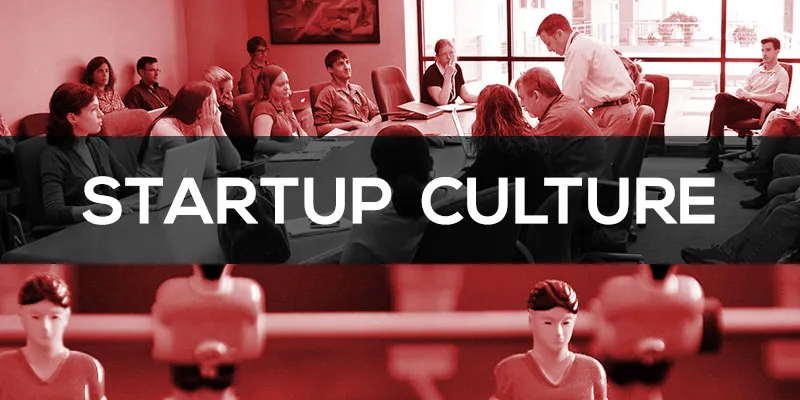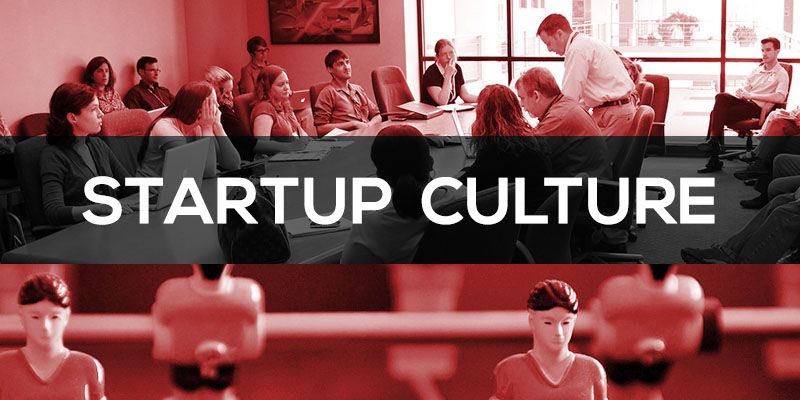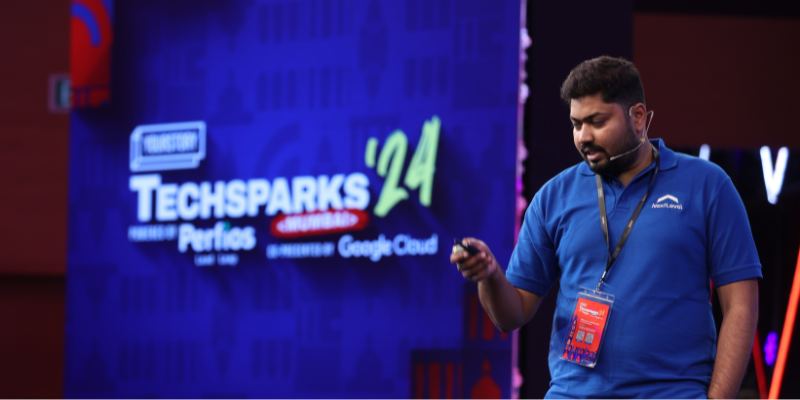How founders of InMobi, Practo and Urban Ladder hold on to their startup culture
There is something endearing about startup cultures – about carelessly strewn bean bags, foosball tables, wall art and an open door policy. And about how organisations begin and grow. Whether it is the story of Larry Page or of Steve Jobs beginning with just an idea and pure passion, these stories are legends. Most startups tell a story of passion. But what happens when the startup begins its growth, adds new people and processes? Is it able to hold on to its transparency and open-door culture? Or does the startup start behaving like a large corporate?

Lately, startup culture has received a lot of attention. Many organizations globally have started looking at their culture more seriously and seek experts help to create a better working culture and space for their employees.
Every startup has aspirations and as you get closer to your vision, several things change. New people come into the organization, more layers are added, acquisitions are made, and new marketing plans are created. Teams become more diversified and the pyramid starts becoming narrower and sharper. Whether it is reaching a wider audience base or expansion into different cities or an aggressive marketing plan, it's the deep pockets that make it happen.
And like any change there's bound to be friction and upheavals. The founders are focused on the big picture, and they see funding as the first step towards achieving their goal and vision. So how does a startup balance, manage and take on the internal working culture and environment towards growth?
Growth and its challenges
Talking about managing the fast-paced change and growing environment, Naveen Tewari, Founder and CEO of InMobi, said that the basic assumption of a startup is that it is fast growing. He says there are some people who can stay in sync with that fast growth and grow at the same pace and others who don’t. According to Naveen, it is those who don’t grow that cause the challenge. Most people in startups, he says, are high on passion, because that is exactly the quality most startups are looking for.
Naveen says that while one big dimension of a startup is the passion and drive that individuals have, the second big dimension is skills. These are built over a period of time.
Citing an example, Naveen says that an organisation like InMobi tends to value the need for passion over that of skills. However, he says that as organisations grow, the need for skills along with passion starts becoming important.
Amalgamate the old and new with clear communication
As layers begin to get added, the connection with the founders starts becoming lower, unlike in the initial days, explains Naveen. This leads to people being unhappy. He says that as entrepreneurs we need to better chart out the growth path for people who are exceptional in their passion. He says that these people are growing fine, just that the organisation is growing faster.
Naveen believes that entrepreneurs need to be very clear in communicating what is happening and why it is happening. This view is shared by Shashank, Founder and CEO of Practo, who, too, believes that communication is the key.
Practo began in a garage and today has more than 1000 employees across several cities of India, and different countries. The idea was ensuring that everyone understood the core ethos and culture of the organisation. For that, Shashank adds,
We initially spent most of our time and energy in ensuring that we build a very strong communication system. He adds that from day one everyone was very clear that Practo wanted to be a global company and for that communication was the key.
Talking about the problems that lack of communication causes, Naveen says:
The mistake we make is that we bring in new people without telling the existing employees why they are coming in. This creates a difficult situation both for the new and the old people. This is true for even entrepreneurs, who might have to make way for someone else so that they can grow as fast as the organisation. However, he says, in the case of entrepreneurs, they are the ones making the decision unlike the other employees.
"Transparency and openness is really important," adds Shashank. He says that earlier with just 10 people it was easier to communicate, but as the organisation began to grow, that became difficult. He says the reason people join a startup is because they want to know everything and be a part of everything. He adds that these are passionate people who will not be happy with just what their function is, they want the bigger picture.
Says he: “So we did everything possible to build that network. We had newsletters that gave in depth information of what is happening in the organisation, we have an open-house that happens every quarter where every single office of Practo across locations participates for three hours. The leadership team ensures that everyone is aligned to what we are doing and why we are doing it.”
Rajiv Srivatsa, Co-founder and COO of Urban Ladder says that they have been fortunate enough to maintain their cultural ethos. He too believes that this is due to clear communication. He said while there are several new employees from different backgrounds, they have been able to hold their culture fit strongly through the hiring process.
All three entrepreneurs believe that when the organisation grows, it is important to tell the new employees what the organisation stands for, what it values, their way of working everything. Adding to this Naveen says,
You need to create a system that both the new and old understand the culture. If you don’t do that you begin to hear things like ‘this isn’t the company that I thought it would be,’ or ‘this isn’t the company that it used to be.’ He adds that we took culture in our hands and made sure that people knew what the company stood for.
Building the core culture
According to Naveen, where entrepreneurs falter or go wrong is when they do little to help the truly passionate people grow. He says that as an entrepreneur you become so focussed on growing that you do not step back and think of what you can do to help those people grow, especially who really took the risk with you. Naveen adds that learning from their initial mistakes of managing the growth and culture, they worked towards building the culture and the people. He also adds that it is important to define your culture early on and be very clear about it
Practo, which seven years back was a bootstrapped venture, had several early employees or early ‘Practeons.’ These were individuals who shared similar passions, and Shashank adds that they all hold important positions in Practo today. Says Shashank:
Our head of India sales is one of our earliest employees, the person who is heading Singapore is the fifth person who joined us, and the person who heads engineering is the very first person who joined us. They are very happy and we are glad that we have been able to retain them.
He adds that these people are the DNA of the organisation and need to be strong.
In the same vein, Rajiv believes that the core has to remain the same, as it is the discipline of maintaining that core that brings in a healthy culture. The entrepreneurs believe that if the DNA and core team has the culture and points clear in their heads, then it becomes easier for the newer employees and everyone in the organisation.
Naveen adds:
We did a lot of investment in our culture, and did a lot of research after the initial three months. Even today, we have our own culture team, which reports in to the founders. It is not an HR function for us, it is a culture. We started to reward and promote people who formed a strong part of our culture. We realised that if we have to be an organisation that has to stand the test of time for many decades, then we have to really be good at our culture.
Practo has something called the Practo way of working, which has every detail of the values, “all our learning’s come from this core. Even when we are scaling up, we go back to the Practo way. It’s our core.”
‘It all lies in the trust you have in the people you hire’

InMobi removed several things like payment incentives and travel allowances; Naveen says, “If we say that we trust you, we will give you a 100 per cent bonus and all the money up front. He adds that this is because we believe you will do the job, and there is also no need for travel allowances, because we trust you to treat it like your money. And this has worked wonders,” adds Naveen.
Shashank adds that when you hire people to do great, you know that they will do great and there are no two ways about it. He says that when every part of your communication is clear, you end up getting people who are aligned to the culture. Rajiv says that Urban Ladder is a very flat organisation, and adds that while they have brought in structure and processes in working towards their goal, they have just added one layer. “We are very sharp in our focus and discipline towards our goal and that works,” adds Rajiv.
Employee reality
While the founders are focussed on the bigger picture and realisation of their vision, do the employees fit in or feel that they are a part of this bigger vision and goal? While the founders believe that there hasn't been much of a change, are ground realities different? Was the information communicated clearly and how did it help them? When YourStory spoke to the employees of Practo and Urban Ladder, they were aware of the news and knew what it meant for them.
According to Siddharth Nihalani, who is AVP Engineering Practo, the funding news was a validation of the hard work the team had put in and was great to hear. He says what was really exciting for him was that the team could now build products faster and scale up the company even more quickly in terms of engineering talent.
Nandini, the head of customer care at Urban Ladder, too says that the team was well aware of all the funding details and growth plans.
The communication lines were always kept open and clear and that really helped us plan our growth along with the organisations growth,
adds Nandini.
Talking about the growth and the number of people who have joined Practo in the recent years, Siddharth Agarwal VP Sales, says,
We don’t believe in layers. To us, they are all just more Practeons, which is fantastic. We always hire people with strong focus on culture fitment and alignment to our mission.
Nandini adds that while there definitely are new people joining in, everyone at Urban Ladder was very aligned to the goal, making it easier for the new people to adjust with the old.











